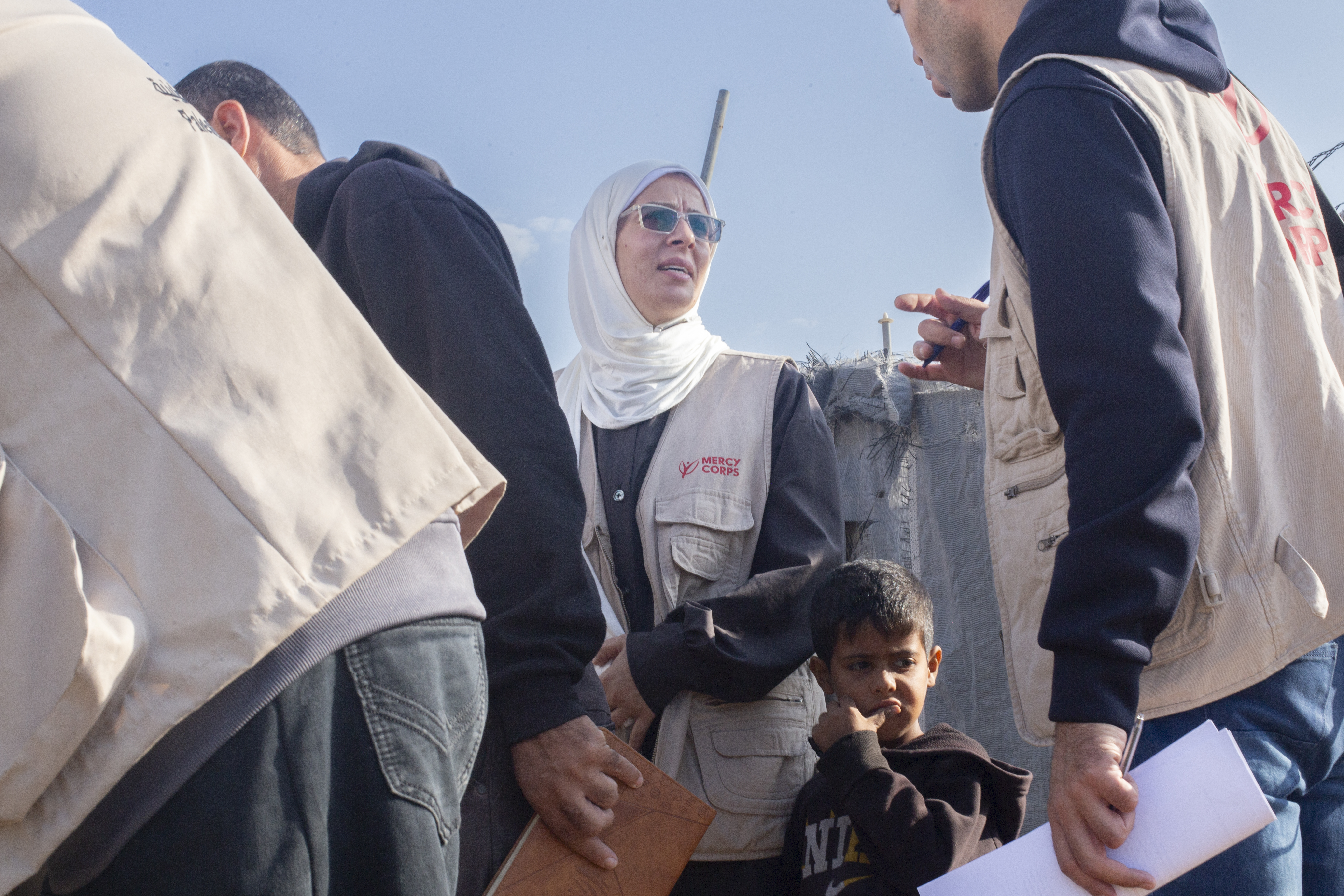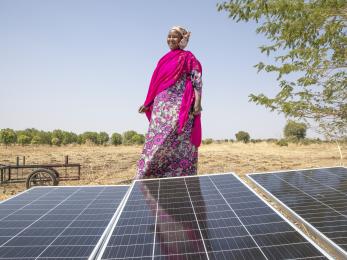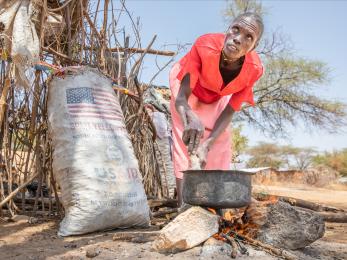On tap: Reliable access to clean water strengthens communities
When Moses Zirah retired, he couldn’t wait to move back to his home community in northeastern Nigeria. Moses had served as an officer in the Nigeria police force and lived in different parts of the country for more than 30 years. He looked forward to spending time with his family and volunteering in his hometown of Vinikilang, Adamawa. However, he had not anticipated the challenge and stress that would result from lack of access to clean water in Vinikilang.
Climate change has brought on hotter and longer dry seasons in the region. After more than a decade of ongoing conflict, climate change exacerbates existing challenges that communities face as they recover. During the dry season, Moses and others in his community had to rely on water vendors who were unable to meet the demand when wells had dried up.
Moses and his family searched for solutions. Moses bought a hand-push cart that he and his family used to fetch water from a borehole far from their home. It was an ordeal to fill the cart with water and push it all the way home. He purchased water from other taps in his community, but as a retiree without a steady income, his family had to do without water occasionally. “When there is no money to pay for water, you will not have water to use,” said Moses. “Even taps within the community were not free to access.”
Naomi, Moses’s wife, had piled up house chores that required water. They practiced recycling water, like flushing their toilets with water they had used to wash their clothes. It was stressful to manage every last drop of water in their household.
As part of a program that provides and sustains access to water and sanitation services for people living small towns across northeastern Nigeria, Mercy Corps collaborated with local community leaders in Vinikilang to build a water facility to deliver safe, clean water to homes. The program supports communities affected by crises, and strengthens the capacity of local governments to provide and sustain essential services commonly known as WASH (water, sanitation, and hygiene).
Once the 50,000-liter capacity water facility was constructed and in operation, Moses and his family connected their home to the water main. Moses’s family is one of almost 90 households who are now receiving reliable access to water in Vinikilang. “It has made a lot of difference,” said Naomi. “We used to travel to get water but now in a matter of seconds, water is available.”
Local community members make up the Water Consumers’ Association (WCA), who oversee, maintain, and manage the water facility and the households who are connected to it. By collecting a reasonable fee for water access, the WCA can repair and sustain the facility, ensuring continued service for Vinikilang residents.
Before, we would have been out on the streets looking for water but now we can relax as a family.
Moses Zirah, Vinikilang resident
As Moses settles into enjoying his retirement, he now has more time to rest since he and his family will not have to face the burden of seeking water during the dry season. Moses and Naomi have experienced the positive impact of the local water facility, and hope other small towns in the region will also have the same type of access to water. “Water is life,” said Moses, as he embarks on a new chapter back in his hometown.


